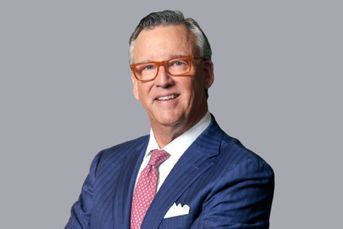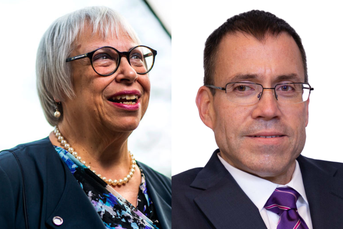401(k) plans value advisers most for investment returns: Fidelity survey

The recent volatility gives advisers an opportunity to prove their worth
More than half of 401(k) plan sponsors say that the top selling point for advisers is their ability to recommend good investments — something plans are now likely paying more attention to than ever.
Results of a survey in February of more than 1,500 plan sponsors published Monday by Fidelity Investments show that 56% said that investment performance is the way advisers show their value. Over the past two years, nearly three quarters of plans have made changes to their investment menus, with 53% of them reporting changes were made for performance reasons.
“Plan investments continue to be a focus and will continue to be a focus, given the current environment,” said Liz Pathe, head of defined contribution investment only sales at Fidelity Institutional. “There is the potential for continued market volatility — that is an opportunity for advisers to be even more proactive.”
Recent talks with sponsors and plan advisers have indicated that performance is their leading concern, Pathe said.
While plan sponsors appear to be chasing returns, they have also made alterations to plan menus in light of a plan strategy review (37%), adviser recommendations (37%), lowering fees (35%), recommendations from record keepers (31%), increasing risk for the sake of higher potential returns (27%), following the plan’s investment policy statement (26%) and fiduciary concerns (24%), according to Fidelity. Plan sponsors could choose multiple responses in the survey.
Even with those concerns in mind, plan sponsors said they do not review their investment menus as often as they once did. While 44% said they evaluate investment performance at least quarterly, that is down from 58% a year ago, according to Fidelity.
Most sponsors — 92% — said work with advisers, and 70% of those who did said they were very satisfied with their services, the survey results show. That leaves some room for advisers to improve. About 23% of sponsors rated with satisfaction with their adviser at a 5 out of 7, and more than 7% rated it lower.
One way that plan advisers can show their value is evaluating “financial wellness” options, including Health Savings Accounts and student loan benefits, Pathe said.
“There continues to be an opportunity for advisers, even beyond investments,” she said.
More than half of plans said they have some type of financial wellness program, and that is more common among plans that work with advisers, and 59% versus 38%. Of those with such programs, 61% said they have had a positive impact on employees, Pathe said. And of plans with HSAs, only 40% of employees enroll, she said.
The top reason why sponsors opt for the first time to hire an adviser is that managing their plans have become increasing complex and requires more of their time, according to Fidelity.
And advisers have a strong role in reshaping those plans. The survey found that 82% of plans have made some kind of design change over the past two years, and those that hire advisers have significantly higher rates of using automatic enrollment (7% higher than those without advisers), automatic contribution increases (4% higher) and Roth 401(k) options (6% higher).
Amid the COVID-19 crisis, many employers have put their company contributions to employee retirement accounts on the chopping block, a plan design change that advisers have been assisting them with.
A separate survey Fidelity fielded in April found that 63% of plans were not yet considering any changes to company matching contributions.
Learn more about reprints and licensing for this article.








